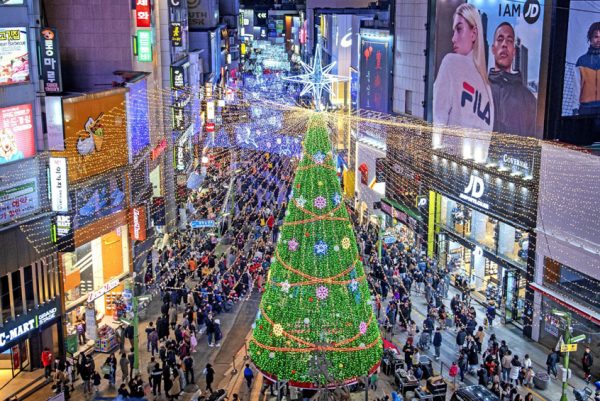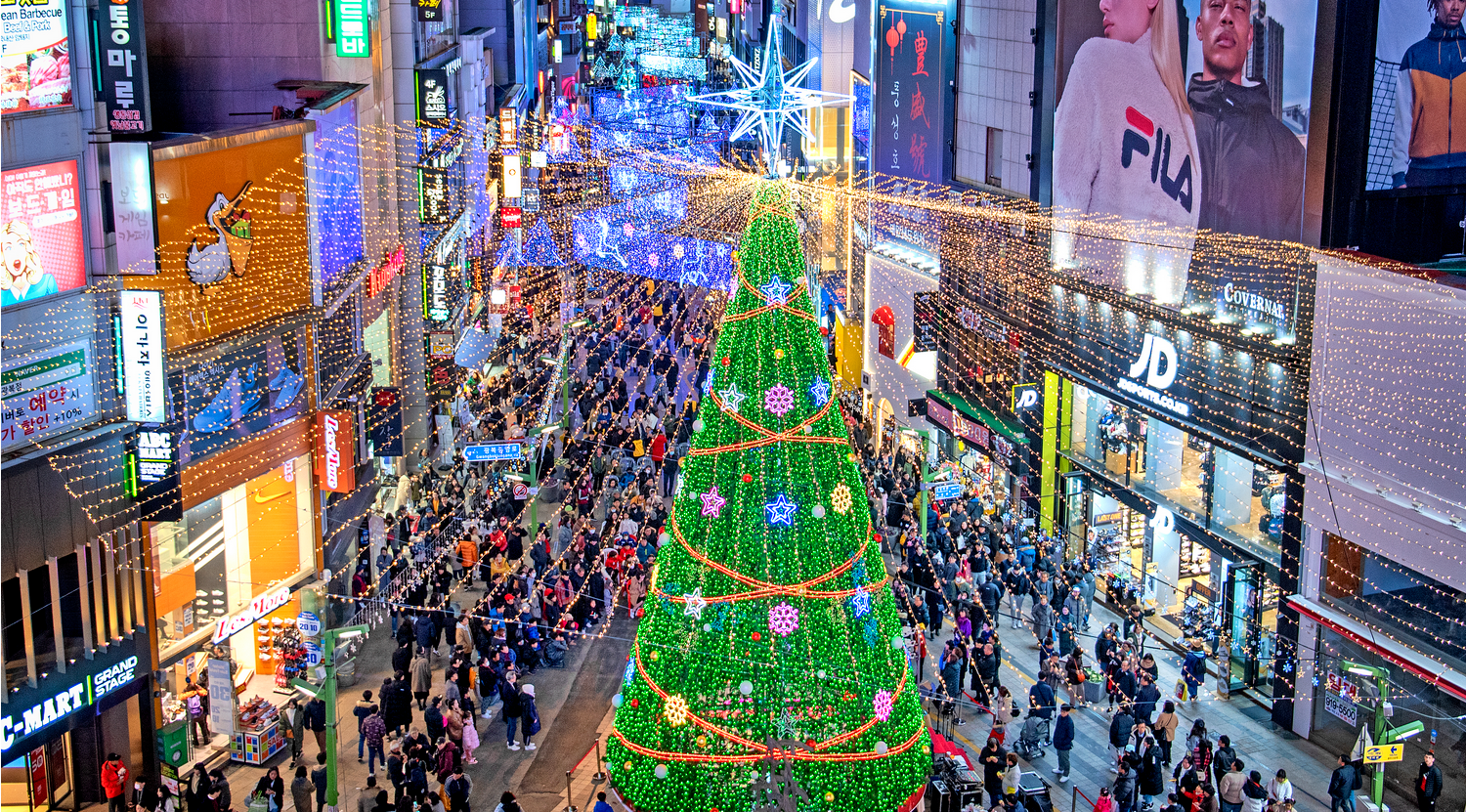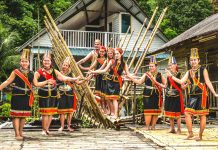BUSAN, 19 December 2022: Surrounded by the sea, Busan is well known as a summer tourist destination. It is also a popular winter destination to Koreans who want to avoid the cold weather thanks to its location in the southern part of the country and its warmer winter climate. In addition, various activities and unique attractions can be enjoyed in the winter in Busan, doubling the fun of the year-end holiday. For instance, there are cooking classes where you can make traditional Busan dishes. You can also enjoy relaxing in the city’s many hot springs and jjimjilbangs. There are also special winter festivals where you can get into the Christmas spirit.

Make and Taste Traditional Busan Dishes
Since Busan faces the sea, eomuk, a fishcake made with fish as the main ingredient, is considered to be one of the most popular local foods. After the country’s liberation, people who returned from Japan went into the eomuk business by opening fishcake factories, helping the fishcake become a representative food of Busan. Eomuk can be eaten with warm broth, making it a perfect street food in the cold winter. Samjin Amook is a bakery-style store that sells unique types of fishcakes, while also operating a history centre that offers eomuk-making classes. A highly recommended program for eomuk lovers, you can choose from cooking courses ranging from easy ones that even children can join to more difficult ones. The centre also provides an educational session on the history of Busan, allowing you to understand and enjoy the history, culture, and food of Korea and Busan during your visit.

In addition to fishcake, there are cooking classes where you can make a variety of other traditional Busan foods. Jangtofu Company is a travel agency that operates cooking classes and gourmet walking tours for overseas tourists. The cooking class program usually starts with a lecture on Busan’s food culture, followed by a cooking class, meal, tea ceremony, and a traditional market tour. Using fresh ingredients from Busan’s Jagalchi Market, you can make four types of dishes: Dongnae pajeon (Korean scallion pancakes), jogaemiyeokguk (seaweed soup with clams), nakjibokkeum (stir-fried octopus), and a dish using seasonal ingredients. Dongnae is an old name for Busan, with Dongrae pajeon being a special dish that was often presented to the kings of the Joseon Dynasty. Later, it appeared in Dongnae Market and has become a key local food of Busan. During class you can taste various flavors of the ocean, thanks to special ingredients such as fresh clams, seaweed, and octopus from the sea around Busan. Every Thursday, there is even a cooking class for vegan participants, where seafood is not used.
Enjoy a Unique Experience While Relaxing

In the winter, there is an optimal place where you can warm up your shivering body and relieve your fatigue. In Busan, hot springs have been around since ancient times, with Dongnae Hot Spring and Haeundae Hot Spring being the most popular. Dongnae Hot Spring is known as Asia’s largest hot spring, and it has a variety of convenience facilities suited to its size. Among them, there is the family hot spring, where you can relax together with your family. Haeundae Hot Spring is the only coastal hot spring in Korea and is famous for its hot spring water containing healthy substances that are beneficial for your skin. You can enjoy a hot spring bath while looking down at the sea view through wide windows, which makes this hot spring a special destination. In addition, there are hot springs that are conveniently located near department stores. Located inside the Centum Shinsegae Department Store, Spa Land is attractive in that it has outdoor footbaths where you can soak your feet in the warm hot spring water while looking at the Suyeong River, as well as various themed jjimjilbangs and convenient facilities.
How to Enjoy a Special End-of-Year Holiday in Busan

If you want to double the excitement of your end-of-the-year holidays, make sure to take part in the winter festivals of Busan. The Haeundae Light Festival, where you can see waves of light spread over a white sandy beach, has a fantastic atmosphere. The Busan Christmas Tree Cultural Festival, where the streets are decorated with colorful sculptures and tree lights around Gwangbok-ro, is also held around this time of the year.
The Haeundae Light Festival, in its 9th year, will be held from November 18 to January 24, with the theme of “Again, Haeundae Sea of Light.” Compared to last year, the festival area has doubled in size, and the fantastic light sculptures illuminate the entirety of Haeundae. On Christmas, you can watch various performances on stage in the event plaza at Haeundae Beach. Here, against the background of the night sea and the wonderful sculptures, visitors can take photos that they will cherish for a lifetime.
At the Busan Christmas Tree Cultural Festival, held from December 17 to January 29, colourful Christmas decorations illuminate Gwangbok-ro, and a huge Christmas tree serves as the centrepiece of the decorations. In addition to photo zones, various performances and experience programs are held in the plaza, where you can immerse yourself in the year-end atmosphere. At Yongdusan Park, the 2023 New Year’s Bell Ringing Ceremony for Citizens will be held, where you can spend a meaningful time welcoming in the new year with your loved ones.
In Busan, you can experience its many unique winter charms made possible by the city’s warm weather, nearby ocean, various activities, and festivals. Wrap up 2022 and ring in the new year in Busan and make wonderful long-lasting memories.
For more information visit: https://bto.or.kr/cvbeng/CMS/Board/Board.do?mCode=MN040&mode=view&mgr_seq=84&board_seq=2864
(Your Stories: Busan Tourism Organization)







